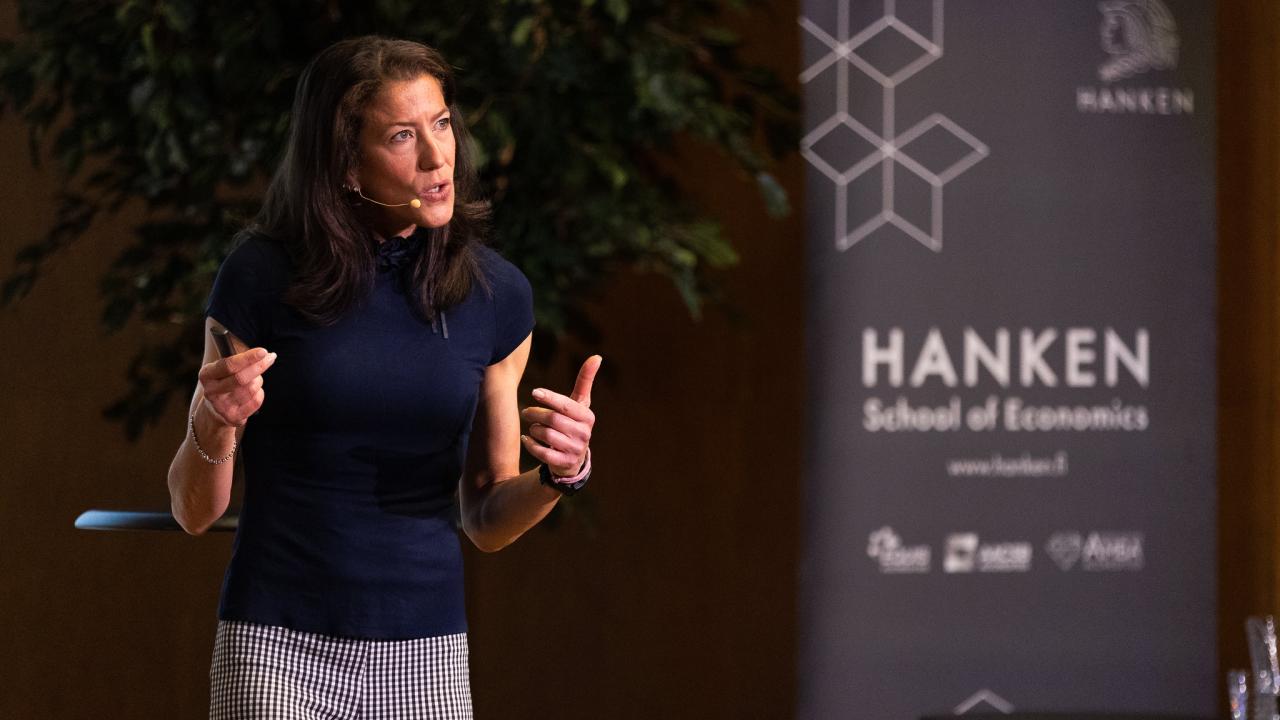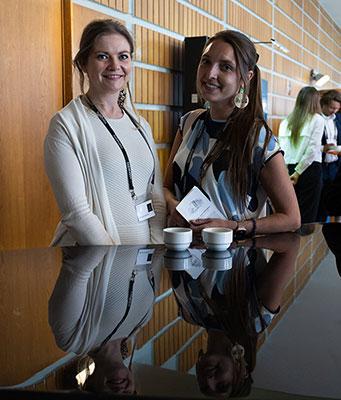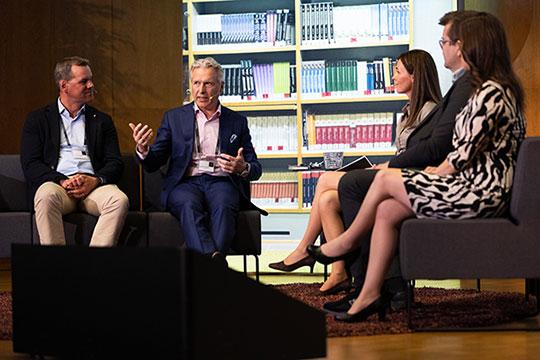Hankendagen 2023: Innovative decision making and playfulness for staying ahead of the game

According to Riabacke, the risk of poor decision making grows if we for instance act like we usually do. We feel safe with choosing the familiar, but we also must recognise when our old ways don’t work anymore. Other pitfalls are doing what everyone else does or waiting too long.
- It’s easy to believe that other companies seem sure of what they are doing, so we imitate, instead of first asking ourselves: what are we and where do we want to go? Then we can be inspired by others, Riabacke explains. Also, waiting isn’t always the best decision method. We also need to calculate the cost of waiting - we seldom do, she continues.
According to Riabacke, we don’t have to be super performers regarding every decision that we make. The most important thing is to recognise the three to five most important decisions for your operations and make these decisions in the best possible way.
What should you do to increase the probability to make good decisions?
The world is now a fairly safe place, but our brain still pays too much attention to negative information as well as possible threats and risks. Our feelings are always faster than our logic, which can sometimes cloud our judgement.
- Being reflective makes you more effective. When it comes to decisions, if we don’t stop and reflect, we only react to urgent issues that may not be important, and forget the important but not so urgent decisions, Riabacke emphasises.
She also points out that we should not make important and permanent decisions based on temporary feelings, in for instance in a state of hunger, anger, loneliness or tiredness. In those cases, there is a big chance that we make a decision based on instinct or emotions.
Mona Riabacke stated that people usually hate uncertainty and losing things. Almost paraphrasing Professor Hans Rosling, Riabacke claimed that in a head full of fears there’s no place for dreams:
- Trying new things involves the risk of failure! Don’t be afraid of failure!
Playfulness in the corporate world
Usually, we think of playfulness as something we left behind in our childhood, or only apply for purposes like games or sports. However, researchers Mikko Vesa (Hanken School of Economics) and J. Tuomas Harviainen (Tampere University) showed us at Hankendagen that playfulness is with us all the time and can be a positive force for organisations pursuing industry-wide co-opetition.
- Co-opetition is a hybrid situation where within a given industry you have organisations that are simultaneously both competing and cooperating, says Vesa.
According to Vesa and Harviainen, co-opetition can function through an industry wide culture. In their research they have been focusing on the Finnish game industry which is a prime example of playful co-opetition with substantial benefits for e.g., innovation and resource allocation.
- This is an industry that often comes together in various celebrations and informal gatherings. There is a kind of informal information sharing taking place all the time, Harviainen explains.
Playful, co-opetitive industries are defined by transparency and inclusion. There is an environment of high trust. People celebrate each other’s successes since the market tends to be outside of Finland. Every victory is seen as a benefit for everyone.
The benefits of playful co-opetitive industry strategies
When there are no undue industry secrets, everybody can see what the competitors are doing, hence there are never similar products being launched. You can also have joint development of best practices by meeting, sharing and learning from each other. In the game industry this culture has resulted in a globally recognised employee value proposition:
- The digital games industry is the only industry in Finland that gets a substantial amount of open job applications internationally, and actually also recruit that way, Vesa adds.
According to Vesa and Harviainen, these ideas can also be applied to other industries. You can learn best practices from the gaming industry as long as you find your unique way of applying them.
Bubbly, positive feeling among the alumni at Hankendagen 2023
Hanken’s alum Micke Paqvalén enjoyed Hankendagen together with friends. Paqvalén is an entrepreneur who recognised and agreed with a lot within Mona Riabacke’s talk.
- This topic is more relevant than ever, and it was a well-chosen theme for the seminar. Risk and change are something that we just have to learn to live with, just like AI or Chat GPT.
Anna af Schultén and Linda Gustafsson came together to Hankendagen and both valued the networking possibilities at the seminar.
- Hankendagen has interesting themes and I have participated online a few times before, but this is my first time here on site. It is more fun to be here, you focus more on the programme and it is really nice to meet people!
At Hankendagen, the winners of the annual Finnish Innovation Index (FII) were also presented. FII lists the most innovative companies according to Finnish consumers. The panel during Hankendagen discussed the key success factors for firm innovativeness.
The panel consisted of Timo Hulmi, CEO at IKEA, Tuomas Salusjärvi, EVP at Valio, Lars Peter Lindfors, EVP at Neste and Kristina Heinonen, Professor of Marketing.
Read more about the index and the results here:
Finnish Innovation Index 2023
The seminar ended with Rector Ingmar Björkman presenting the Alumnus of the Year 2023: Kurt Björklund.
Read more about him here: Alumnus of the Year Kurt Björklund Opens in new window
Link to photogallery Opens in new window
Link to recording* Opens in new window
*The recording does not include Mona Riabacke’s keynote
The next Hankendagen will be held in May 2024 in Vaasa - Welcome!
Text: Marlene Günsberg
Photo: Niklas Gerkman



